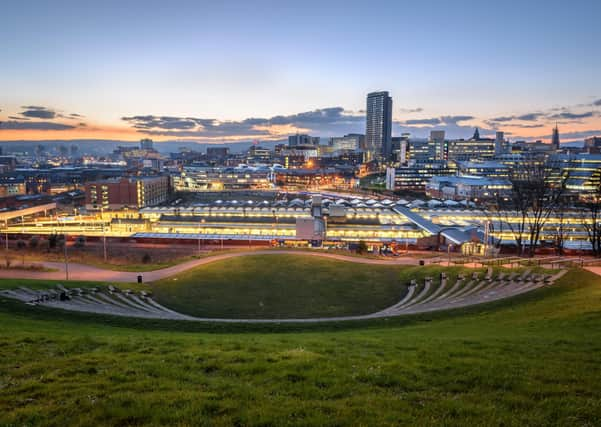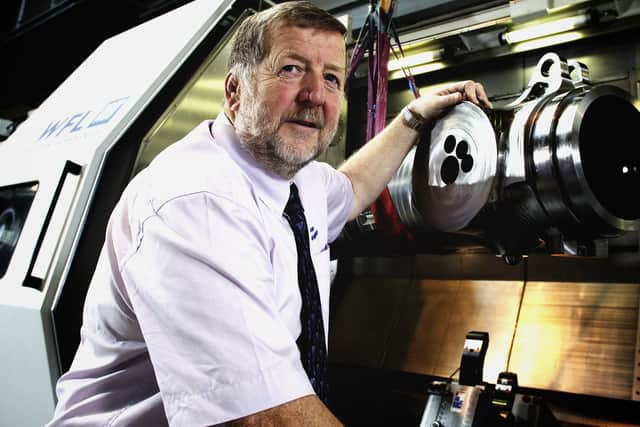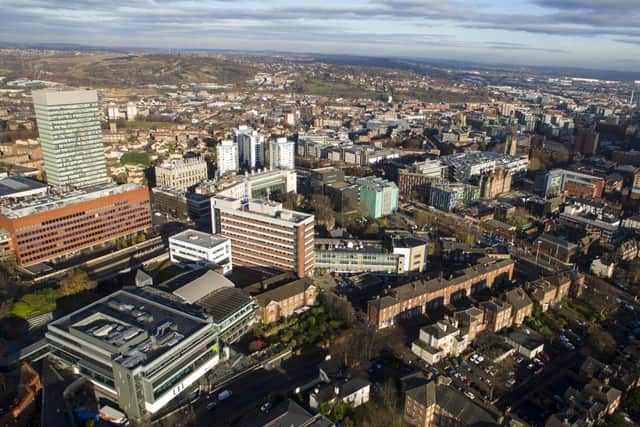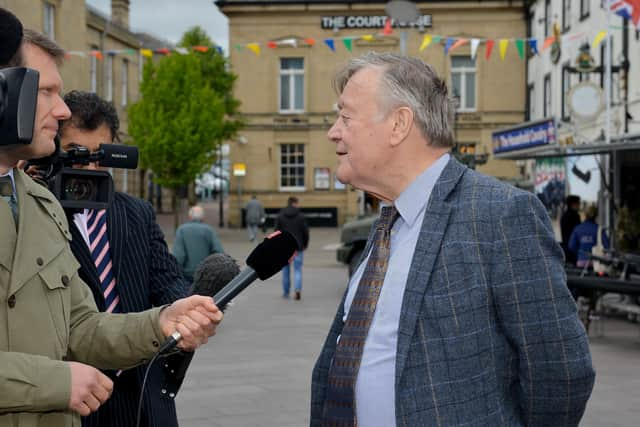How Sheffield can go ‘full monty’ and lead the world again – Keith Ridgway


The opening paragraph of A Tale of Two Cities by Charles Dickens could have been written about two cities with very similar backgrounds: Sheffield in South Yorkshire and Dortmund in Nordrhein-Westphalia.
Both cities have populations approaching 600,000 and a historic focus on heavy engineering. Both have had the best of times with thriving coal and steel industries in the post-war decades.
Advertisement
Hide AdAdvertisement
Hide AdAnd both have experienced the worst of times with the collapse of their staple industries as competition from cheap labour in the Far East ramped up.


Sheffield was once the undisputed iron, steel and cutlery capital of the world. Fast forward to the 1973-75 recession and it is a very different picture.
By then steel and coal were nationalised industries and facing a perfect storm of obsolescent plants operating below capacity, outdated technology, price controls reducing marketing flexibility, increasing global competition, soaring energy costs and increasing shop floor militancy.
Enter Margaret Thatcher, whose privatisation policy amounted to a de-industrialisation policy. While the financiers of the City of London got the Big Bang, South Yorkshire got the Full Monty – mass unemployment disguised through the use of invalidity benefits.
Advertisement
Hide AdAdvertisement
Hide AdIn a recent interview, former Tory Chancellor Kenneth Clarke acknowledged that the Thatcher government had been wrong to think a new economy would naturally emerge from beneath the rubble of the collapsed coal and steel industries.


His interviewer, Peter Mandelson, agreed and added that it was now urgent to “reindustrialise our economy on the basis of our superb science and technology base”.
After two decades of doing just this, Dortmund is today ranked among the 12 most innovative cities in the European Union and is one of Germany’s most sustainable and digital cities.
Sheffield, by contrast, continues to languish in the lower reaches of the national productivity and skills league tables. It has still to make the transition to an advanced manufacturing economy with a skills base to support innovation.
Advertisement
Hide AdAdvertisement
Hide AdFor those who think Dortmund started from a better base: think again. Dortmund as a city was all but destroyed by Allied air raids during the war, and had to compete for central government funds when €70bn a year was going to pay for East Germany for reunification.


Older generations will recall that, in the immediate aftermath of the war, manufacturers in Sheffield were using German machine tools shipped to the UK as reparations for the war: indeed, some of this equipment came from Dortmund itself, which had to be inventive, roll up its sleeves and build new machines.
And that is was it did, culminating with the establishment of the Dortmund-Project – a public-private sector partnership between the major steel producer ThyssenKrupp AG, supported by management consultants McKinsey, the metalworkers union (IG Metall), Dortmund City Council and the powerful city Chambers of Commerce – to drive forward regeneration.
This partnership emerged following the decision by ThyssenKrupp to close the last steel mill in Dortmund and provides valuable leadership and collaboration lessons for Sheffield.
Advertisement
Hide AdAdvertisement
Hide AdDortmund’s path to recovery was charted in a city-wide industrial strategy. This identified technology clusters, created an infrastructure to enable the clusters to support innovation and entrepreneurship in existing businesses and start-ups.
The lesson for Sheffield is that it needs to focus on core clusters to spark innovation across sectors (advanced manufacturing, clean energy, digital, health and well-being).
While Sheffield has the industrial R&D capability to match any in the world, its manufacturing hubs – similar in some ways to Dortmund’s competence centres – are effectively international assets in a local setting, which can create confusion for local policy makers.
But they could form the nucleus of a connected ecosystem that supports the growth of Sheffield into a truly global advanced manufacturing innovation district. The city already has a large innovation district stretching from the Advanced Manufacturing Park to the Olympic Legacy Park.
Advertisement
Hide AdAdvertisement
Hide AdThis is a powerful launch pad from which to begin the next phase of development. We can create competence centres from existing research assets – though this might require government intervention.
To do this requires a different mindset in the city. What it needs is the vision, leadership and determination that Dortmund has shown over two decades.
With a new council in Sheffield committed to cross-party collaboration – a rainbow coalition – and a new CEO determined to put advanced manufacturing at the heart of her growth agenda, it could provide this change of mindset.
And it is hard to see how a government committed to levelling up would not join hands with a city committed to the same goal. Dortmund is a famously stubborn city – an attribute it shares with Sheffield. When faced with adversity its people will often say: “Let us roll up our sleeves, spit on our hands and get to work.”
Advertisement
Hide AdAdvertisement
Hide AdAs Sheffield continues to grapple with a long legacy of adversity, never has there been a better moment for us to roll our sleeves up and leave a very different legacy for the next generation.
* Professor Sir Keith Ridgway was a founder of the Advanced Manufacturing and Research Centre in Rotherham.
Support The Yorkshire Post and become a subscriber today. Your subscription will help us to continue to bring quality news to the people of Yorkshire. In return, you’ll see fewer ads on site, get free access to our app and receive exclusive members-only offers. Click here to subscribe.
Comment Guidelines
National World encourages reader discussion on our stories. User feedback, insights and back-and-forth exchanges add a rich layer of context to reporting. Please review our Community Guidelines before commenting.